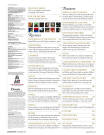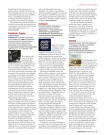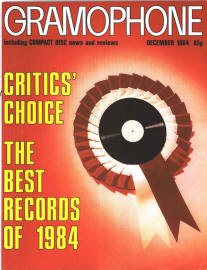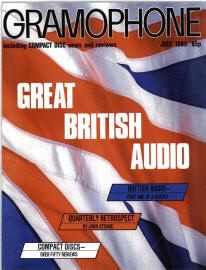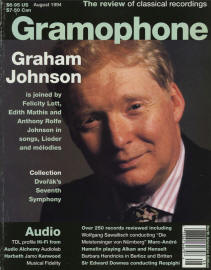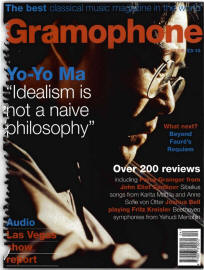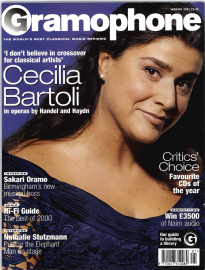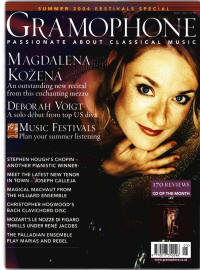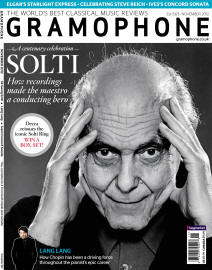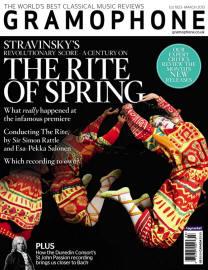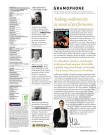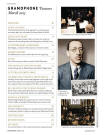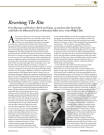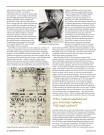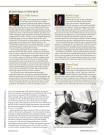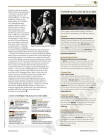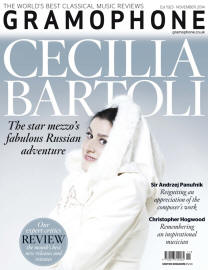Gramophone
Despite his protestations to the contrary ( ''all
material contained herein is for entertainment purposes only,
and should not be confused with any other form of artistic expression''),
despite his whimsical titles and his joky, deliberately misleading
sleeve-notes, this is Frank Zappa's 'serious' music, and seriously
the best of it should be taken. Zappa describes its style as
''preposterously non-modern'', but for the biggest and most
'serious' piece here, The Perfect Stranger, 'post-Varese with
frequent gestures of acknowledgment towards Messiaen' would
be closer to the mark. (read
more)
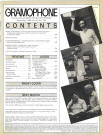
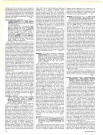
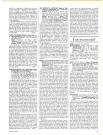
Source: gramophone.co.uk
"Francesco Zappa, we're told, survived 25 years
of the eighteenth century before making his final cadence. It
is surprising his neighbours stood it for so long as that. Not
that there is anything the least objectionable in his music.
Quite the reverse. It suffers from complete perfection—impeccably
elegant, blissfully symmetrical, and regular as a well-dosed
patient. His notes could never be inégales.
Francesco's twentieth-century namesake, however, recognized
in these scores suitable material for transmutation into the
golden glories of space-age timbres." (read
more)
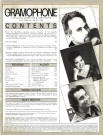
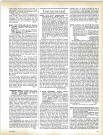
Source: gramophone.co.uk
"Indeed, it is both touching and apposite that
Cage's legendary 4'33'' of inhabited silence be entrusted to
the late Frank Zappa who, the odd shuffle notwithstanding, simply
sits by and lets it all happen. Your contribution—and don't
forget that for Cage, listening also means participating—is
to have Zappa's silence enrich your own, so that whatever occurs
therein (or thereafter) helps fashion a 'unique' experience."
(read
more)
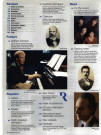
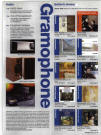
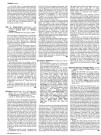
Source: gramophone.co.uk
"The phrase ‘arranged for brass quintet’ too
often means ‘emasculated and equipped with brass-band cliches
and showy solos for the lead trumpet’. Meridian, however, is
a sextet (brass plus drums), most of whose players can either
double on a non-brass instrument (guitar, saxophone, more drums)
or can sort of sing. So I need not have worried: the mercurial
Zappa and the anarchic Don Van Vliet (also known as Captain
Beefheart) are not excessively neatened and tidied by these
arrangements. " (read
more)
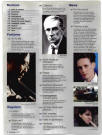
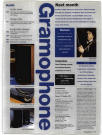
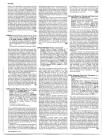
Source: gramophone.co.uk
"Yes, this is Frank Zappa played on baroque instruments.
Authenticity to Zappa is no doubt a deal more important than
authenticity to the baroque, so no one will object to the (doubly)
inauthentic use of a melodica (a sort of end-blown mouth-organ
with a keyboard; though Zappa might have preferred its coarser
cousin the goofus); in fact, doubling with baroque oboe it can
sound rather like a saxophone, and on its own can produce the
‘bent’ notes that were so characteristic of Zappa’s guitar playing.
Speaking of guitars and authenticity, the baroque strings use
an amount of pizzicato that would have surprised Monteverdi,
though both he and Zappa might have regretted the infrequent
use of the punchy baroque bassoon." (read
more)
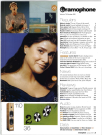
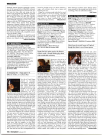
Source: gramophone.co.uk
"The idea of Frank Zappa’s compositions becoming
repertory music is a delicious irony, though not entirely an
accidental one. On one hand, he regarded most classical ensembles
as glorified bar bands covering other people’s hits; on the
other, he often said he played rock music only because no classical
musicians would play his works. For Zappa, seriousness and shock
value went hand in hand, and the key to being in his club was
knowing how to separate the two." (read
more)
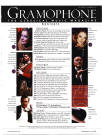
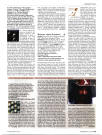
Source: gramophone.co.uk
2012 November
Vol. 90 Issue 1089
Zappa arranged for the RAM’s new music ensemble
By Philip Clark, p 58
"This album of orchestrated Frank Zappa arrives,
as such albums tend to, with a fawning booklet-note by a classical
composer – hello Philip Cashian, who’s clearly in love with
the Zappa mythology. As Cashian points out, Zappa was indeed
a ‘guitarist, songwriter, composer, film-maker, satirist, writer
and social and political commentator all rolled into one’ and
while, fair comment, it’s true that ‘you could never tell which
combinations of those elements would come out in Zappa’s music’,
that doesn’t mean everything he touched turned to gold. The
big feature here is The Perfect Stranger, which Zappa, with
characteristic chutzpah, managed to persuade Pierre Boulez to
record in 1974." (read
more)
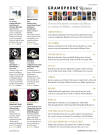
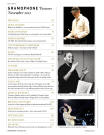
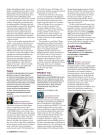
Source: gramophone.co.uk
2014 November
Vol. 92 Issue 1116
Goebbels. Zappa.
Perfect Strangers
Goebbels Suite for Sampler and Orchestra from Surrogate
Cities
Zappa The Dog Breath Variations/Uncle Meat.
Dupree’s Paradise. The Perfect Stranger. G‑Spot Tornado. Revised
Music for Low Budget Orchestra
Norwegian Radio Orchestra / Thomas Søndergård
LAWO Classics LWC1063 (69’ • DDD)
By Richard Whitehouse, p 29
...
Whereas Goebbels provokes, Frank Zappa overwhelms in his desire
to confront the listener with his pungent and (almost) invariably
ironic worldview. This selection of five orchestral pieces,
taken from across his multifarious output, underlines why this
most assaultive of rock musicians has posthumously become a
composer with whom to reckon – ranging as it does from the sardonic
schmaltz of Dog Breath Variations, via the Boulezian
textural intricacy of The Perfect Stranger, to the
big-band anarchy of Revised Music for Low Budget Orchestra.
Famously intolerant of ‘dumbing down’ on whatever level, Zappa
demands a commitment from his players such as the Norwegian
forces meet admirably. The sound is commendably detailed and
upfront, though it is a pity that the stylishness of LAWO’s
presentation is rather compromised by the booklet-notes – superficial
for Goebbels, wholly inadequate for Zappa.
